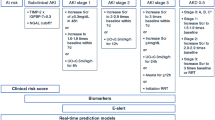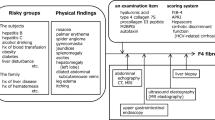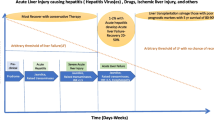Abstract
Background and Objective
Therapeutic plasma exchange (PLEX) is increasingly used in patients with acute liver failure (ALF) as either stand-alone therapy or bridge to liver transplantation. Etiology plays a major role in prognosis of these patients and benefit of PLEX may consequently differ across etiologies. This systematic review and meta-analysis aims to evaluate the efficacy of PLEX in treating ALF, focussing on studies with single etiology.
Methods
We conducted a systematic literature search and identified studies comparing PLEX vs. standard medical therapy (SMT) for patients with ALF across all age groups. The protocol was registered in the International Prospective Register of Systematic Reviews (PROSPERO) (CRD42023442383). Pooled risk-ratios were determined by Mantel–Haenszel method within a random effect model. Primary outcome was mortality at ≤ 60-days and 90 days. Secondary outcome was adverse events attributable to PLEX.
Results
Eight studies (pooled sample size in PLEX arm: 284; randomized trials: 2; Comparative cohorts: 6) with retrievable data on ALF were included in this systematic review. Analysis showed that PLEX was associated with significant reduction in mortality at ≤ 60-days (RR 0.64; CI, 0.51–0.80; P < 0.001) and at 90-days (RR 0.67; CI, 0.50–0.90; P = 0.008) as compared to SMT. On sub-group analysis, the survival benefit was noted irrespective of the volume of plasma exchanged during PLEX.
Three studies (pooled sample size in PLEX arm: 110; all comparative cohorts) were identified, which included patients with a single etiology for ALF. These studies included patients with Wilson’s disease, rodenticidal hepatotoxicity and acute fatty liver of pregnancy. Pooled analysis of studies with single etiology ALF showed better reduction in ≤ 90-day mortality with PLEX (RR 0.53; CI, 0.37–0.74; P < 0.001). Studies reported no major side-effects attributable to PLEX.
Conclusion
PLEX is safe and improves survival, independent of the volumes utilized, in patients with ALF as compared to standard medical treatment. The survival benefit is especially pronounced in studies restricted to single etiology.
Graphical Abstract




Similar content being viewed by others
References
Wendon J, Cordoba J, Dhawan A, et al. EASL clinical practical guidelines on the management of acute (fulminant) liver failure. J Hepatol. 2017;66:1047–81. https://doi.org/10.1016/j.jhep.2016.12.003.
Sarin SK, Choudhury A, Sharma MK, et al. Acute-on-chronic liver failure: consensus recommendations of the Asian Pacific association for the study of the liver (APASL): an update. Hepatol Int. 2019;13:353–90.
Bauer PR, Ostermann M, Russell L, et al. Plasma exchange in the intensive care unit: a narrative review. Intensive Care Med. 2022;48:1382–96. https://link.springer.com/10.1007/s00134-022-06793-z
Maiwall R, Sarin SK. Plasma exchange in acute and acute on chronic liver failure. Semin Liver Dis. 2021;41:476–94.
Chapter 8: Assessing risk of bias in a randomized trial [Internet]. [cited 2023 September 6]. Available from: https://training.cochrane.org/handbook/current/chapter-08.
Thomas L, Chandran J, Goel A, et al. Improving transplant-free survival with low-volume plasma exchange to treat children with rodenticide induced hepatotoxicity. J Clin Exp Hepatol. 2023;13:252–8.
Stahl K, Hadem J, Schneider A, et al. Therapeutic plasma exchange in acute liver failure. J Clin Apher. 2019;34:589–97.
Pawaria A, Sood V, Lal BB, et al. Ninety days transplant free survival with high volume plasma exchange in Wilson disease presenting as acute liver failure. J Clin Apher. 2021;36:109–17.
Maiwall R, Bajpai M, Singh A, et al. Standard-volume plasma exchange improves outcomes in patients with acute liver failure: A randomized controlled trial. Clin Gastroenterol Hepatol. 2022;20:e831–54. https://doi.org/10.1016/j.cgh.2021.01.036.
Li L, Huang D, Xu J, et al. The assessment in patients with acute fatty liver of pregnancy (AFLP) treated with plasma exchange: a cohort study of 298 patients. BMC Pregnancy Childbirth. 2023;23:171. https://bmcpregnancychildbirth.biomedcentral.com/articles/10.1186/s12884-023-05503-x
Larsen FS, Schmidt LE, Bernsmeier C, et al. High-volume plasma exchange in patients with acute liver failure: An open randomised controlled trial. J Hepatol. 2016;64:69–78. https://doi.org/10.1016/j.jhep.2015.08.018.
Kim JE, Chun S, Sinn DH, et al. Initial experience with high-volume plasma exchange in patients with acute liver failure. J Clin Apher. 2021;36:379–89.
Xia Q, Dai X, Huang J, et al. A single-center experience of non-bioartificial liver support systems among Chinese patients with liver failure. Int J Artif Organs. 2014;37:442–54.
Saraf V, Pande S, Gopalakrishnan U, et al. Acute liver failure due to zinc phosphide containing rodenticide poisoning: Clinical features and prognostic indicators of need for liver transplantation. Indian J Gastroenterol. 2015;34:325–9. https://doi.org/10.1007/s12664-015-0583-2.
Goel A, Zachariah U, Daniel D, Eapen CE. Growing evidence for survival benefit with plasma exchange to treat liver failure. J Clin Exp Hepatol. 2023;13:1061–73. https://doi.org/10.1016/j.jceh.2023.06.002. https://linkinghub.elsevier.com/retrieve/pii/S0973688323001275
McPhail MJW, Farne H, Senvar N, et al. Ability of King’s College Criteria and model for end-stage liver disease scores to predict mortality of patients with acute liver failure: A meta-analysis. Clin Gastroenterol Hepatol. 2016;14:516–25.e5. https://www.sciencedirect.com/science/article/pii/S1542356515014032
Beran A, Mohamed MFH, Shaear M, et al. Plasma exchange for acute and acute-on-chronic liver failure: A systematic review and meta-analysis. Liver Transpl. 2024;30:127–41.
Tan EX-X, Wang M-X, Pang J, Lee G-H. Plasma exchange in patients with acute and acute-on-chronic liver failure: A systematic review. World J Gastroenterol. 2020;26:219–45.
Funding
No funding received.
Author information
Authors and Affiliations
Contributions
Conception of the systematic review: UZ, CE, AG; Design of the systematic review and development of the protocol: KS, UZ, CE, AG; Literature search and summarising the data, data extraction, interpretation, analysis and development of manuscript: KS, UZ, CE, AG; All authors have critically revised and approved the final version of the manuscript.
Corresponding author
Ethics declarations
Conflict of interests
KS, UZ, CEE and AG declare that they have no conflict of interest.
Disclaimer
The authors are solely responsible for the data and the contents of the paper. In no way, the Honorary Editor-in-Chief, Editorial Board Members, the Indian Society of Gastroenterology or the printer/publishers are responsible for the results/findings and content of this article.
Additional information
Publisher's Note
Springer Nature remains neutral with regard to jurisdictional claims in published maps and institutional affiliations.
Supplementary Information
Below is the link to the electronic supplementary material.
Rights and permissions
Springer Nature or its licensor (e.g. a society or other partner) holds exclusive rights to this article under a publishing agreement with the author(s) or other rightsholder(s); author self-archiving of the accepted manuscript version of this article is solely governed by the terms of such publishing agreement and applicable law.
About this article
Cite this article
Sithamparapillai, K., Zachariah, U., Eapen, C.E. et al. Plasma exchange improves survival in acute liver failure - An updated systematic review and meta-analysis focussed on comparing within single etiology. Indian J Gastroenterol (2024). https://doi.org/10.1007/s12664-024-01557-7
Received:
Accepted:
Published:
DOI: https://doi.org/10.1007/s12664-024-01557-7




